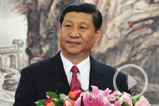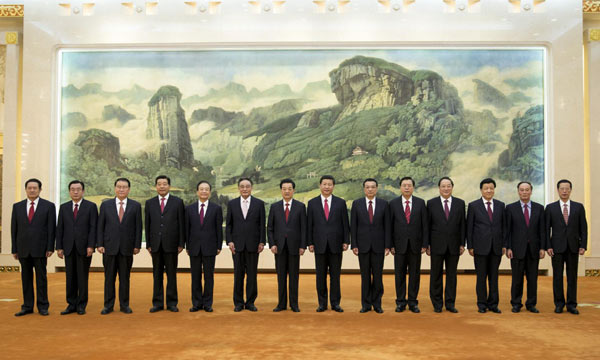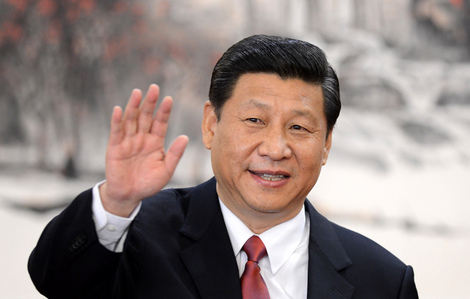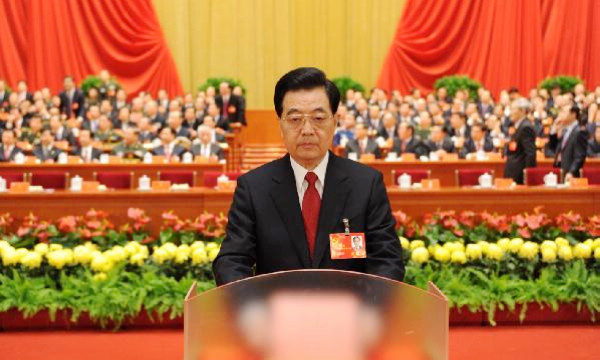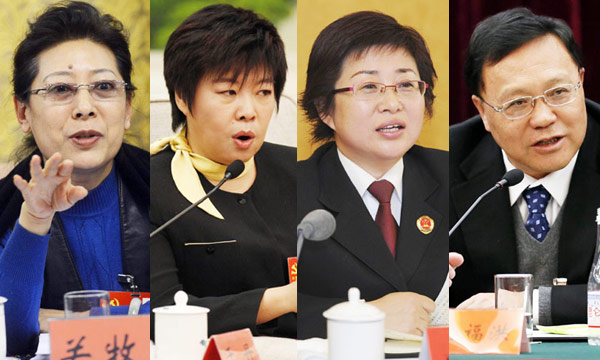China to enhance rule of law against corruption
(Xinhua)
Updated: 2012-11-10 18:29
BEIJING - The Communist Party of China (CPC) has vowed to speed up the building of a country under the rule of law, as Hu Jintao has warned that corruption could trigger the collapse of the Party and the fall of the state.
Multiple high-ranking Chinese officials who previously abused their power have taken a fall in recent years, including former Party chief of the city of Chongqing Bo Xilai, former Minister of Railways Liu Zhijun and Xu Zongheng, former mayor of the city of Shenzhen.
The officials were accused of taking advantage of their positions to seek profits for themselves or for others, receiving huge bribes personally or through their families.
"The exercise of power must be placed under oversight and restriction. Corruption in this regard is most serious," said Tan Jialing, a delegate to the ongoing 18th CPC National Congress.
A lack of supervision, especially legal supervision, will bring harm not only to society, but also to the ruling party itself, said Tan, Party chief of the Nanchuan district of Chongqing.
While delivering a report to the Party congress on Thursday, Hu responded to public concerns by pledging that combating corruption and promoting political integrity will be a clear-cut and long-term political commitment for the Party.
"If we fail to handle this issue well, it could prove fatal to the Party, and even cause the collapse of the Party and the fall of the state," Hu warned.
He ordered leading officials at all levels, especially high-ranking officials, to readily observe the code of conduct on clean governance.
"They should both exercise strict self-discipline and strengthen education and supervision over their family and staff, and they should never seek any privilege," he said.
Hu also pledged to tighten intra-Party democratic and legal oversight, as well as oversight through public opinion, to ensure that the people oversee the exercise of power and that power is exercised in a transparent manner.
"All those who violate Party discipline and state laws, whoever they are and whatever power or official positions they have, must be brought to justice without mercy," Hu warned.
More than 668,000 Party members and government officials have been punished for violating the rules over the past five years, the CPC Central Commission for Discipline Inspection and the Ministry of Supervision announced in a statement last month.
The country's disciplinary authorities investigated 643,000 cases and completed 639,000 of them between November 2007 and June 2012, the statement said.
In those cases, 24,584 people were transferred to judicial organs over suspicion of committing crimes, it said.
Calls for change
"The harsh warnings issued by Hu Jintao against high-ranking officials signal that the Party's fight against corruption will not just focus on individual cases, but on the construction of an institutionalized anti-corruption system," said Li Chengyan, director of the Research Center for Clean Government Construction at Peking University.
"The Party officials are not at all different from ordinary citizens before the law. They should not have any privilege," he said.
Many instances of corruption have been sniffed out by vigilant netizens, beating judicial organs and government agencies to the punch. Two recent cases resulted in the dismissal of local officials who were discovered after evidence of their extravagant lifestyles was exposed online.
"The cases have exposed loopholes in our anti-corruption system," said Party delegate Tong Lihua, a renowned public interest lawyer.
"We need to reform the system to make it more efficient and transparent. We must let the public have confidence in our system, " he said.
The Party has been striving to press ahead with the building of an institutionalized and legalized anti-corruption system in recent years.
Between January 2005 to July 2012, central authorities promulgated 616 related laws, rules and regulations, while local authorities promulgated 1,538 rules and regulations, according to the CPC Central Commission for Discipline Inspection and the Ministry of Supervision.
In his report to the Party's national congress, Hu Jintao pledged to expand the important role that the rule of law plays in the country's governance and social management.
"As the Constitution and laws are adopted by the Party and the people under its leadership, the Party must act within the scope prescribed by the Constitution and laws," Hu said.
"No organization or individual has the privilege of overstepping the Constitution and laws, and no one in a position of power is allowed in any way to take one's own words as the law, place one's own authority above the law or abuse the law," he warned.
Han Dayuan, dean of the Law School of Renmin University of China, said Hu's pledges demonstrate the Party's resolve to apply the Constitution and the law, which may enhance the public's confidence.
"The Party gives us reason to believe that after the 18th CPC National Congress, China will speed up the building of a law-based country, improve the effectiveness of law enforcement and promote social justice," he said.
Related Stories
CPC pledges unremitting efforts to combat corruption 2012-11-08 10:52
China to continue political structure reform 2012-11-08 10:14
Hu says China committed to peaceful development 2012-11-08 10:45
Hu urges CPC to implement essence of the congress 2012-11-10 09:13
CPC determined in political reform: official 2012-11-09 21:04
Hu urges Party to implement CPC congress arrangement 2012-11-09 19:22
CPC makes strides in Party building 2012-11-09 17:11
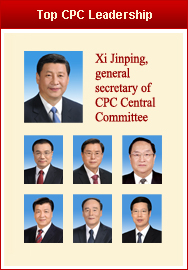
Top News
Xi emphasizes adherence to CPC Congress spirit
Top legislator urges implementation of congress spirit
Moderately prosperous China brings chances to world
Video
